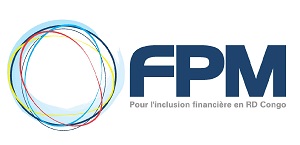Historical background
FPM was created in 2007 on the initiative of the United Nations Development Programme (UNDP) and UNCDF, in close collaboration with the Government of DRC. KfW joined UNDP/UNCDF a year later, and then the World Bank shortly thereafter.
Originally, FPM was a component of the Microfinance Sector Support Programme (MSSP). It was authorized to operate as a non-profit organization under Congolese law in 2010 (ASBL). FPM then became a private entity with its own governance structure and capable of being sustained over time. The management of FPM was then entrusted to the Frankfurt School of Finance and Management, a German consulting firm based in Frankfurt.
The 2010 institutional transition enabled FPM to respond to the new challenges of development finance in DRC and to make significant progress, particularly in terms of effectiveness and efficiency.
At that time, FPM provided its partners mainly with technical assistance, although some refinancing was also done through an agreement with a commercial bank (BCDC) which was coupled with a guarantee mechanism. Naturally, this system was rather cumbersome and had obvious limitations. A non-profit organization is not an adequate tool for conducting refinancing operations.
The non-profit-making FPM has therefore worked to create a specific entity dedicated to refinancing.

The creation of FPM SA in July 2014, followed by its authorisation by the BCC in February 2015, marks the finalisation of the institutionalisation of the FPM begun in 2010. The shareholders of FPM SA (KfW, BIO, Cordaid and Incofin cvso) are among the most dynamic and experienced in setting up refinancing funds. They have a dual objective: financial and social. The total commitment of the investors currently stands at USD 91.6 million. In 2015, FPM SA disbursed almost USD 12 million to seven partner institutions.Although autonomous and legally distinct, FPM ASBL and FPM SA share the same vision and mission, and occupy the same building that serves as the headquarters for both entities.






